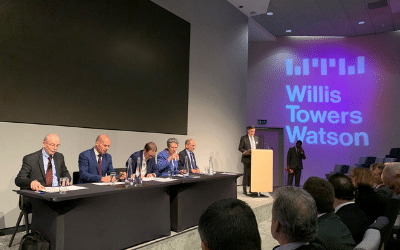FIS Chief Executive Iain McIlwee attended Build UK’s ‘Any Questions?’ event last week, which delivered an informative and thought-provoking debate.
With HS2 being given the ‘green light’ earlier in the week, the event provided the ideal opportunity to think strategically about how construction must change to deliver an infrastructure revolution.
What matters to construction
- The panel was clear that collective culture change was required, with Nick Smallwood (Infrastructure and Projects Authority) pointing out that it starts at the top, giving the industry leaders in the room a clear role to play.
- Procurement took centre stage, from the impact of Carillion’s collapse and the transfer of risk through the supply chain, to the need for greater investment in technology and innovation. This will require a clear pipeline of work and more consistency from clients, which in turn would enable the supply chain to increase efficiency and productivity.
- Processes, people and skills were identified by Mark Farmer (Cast Consultancy) as crucial to winning back public confidence in the aftermath of Grenfell, while Ann Bentley (Rider Levett Bucknall) was passionate about the industry doing more to address the legacy of the fire and demonstrate that new buildings are both fit for purpose and perform as intended.
Driving demand for more Modern Methods of Construction with its potential to meet challenging housing targets was raised – can this new way of working also address the desire for greater flexibility and job security? - The panel was unanimous in its view that we should focus on the positives of working in construction, which included well paid roles at all levels when compared to other sectors.
- This led onto discussion of the current levy and training systems, and whether they are delivering the apprentices the industry needs. Peter Lauener (CITB) rose to the challenge, setting out how CITB was moving from being a delivery body to an enabling one, supporting employers to meet their skills needs.
- Finally, with the attention on net zero carbon, it was agreed that collective action is needed in an industry which contributes 40% of carbon emissions, and this will require a concerted effort from the whole supply chain.
After the probing questions and robust responses, the audience was left in no doubt that the current ways of working are unsustainable and the key question for the industry is whether it is truly ready to do things differently. This presents a huge opportunity, with Build UK and its members well placed to offer the leadership and collaborative working environment that can deliver lasting change and transform construction into a world-class sector.

